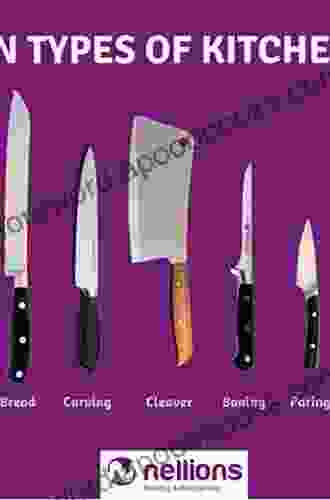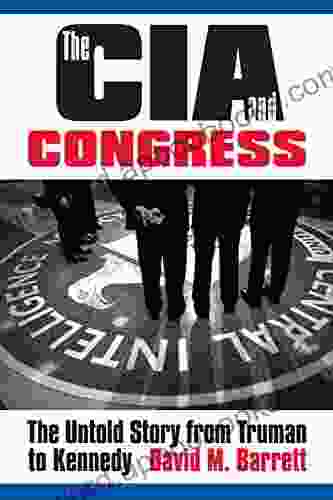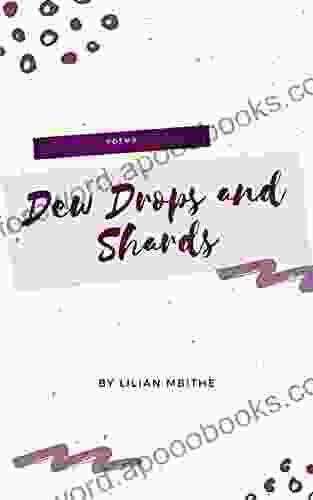On the Nature and Purpose of Drama: A Guide to the Art of Storytelling

4.5 out of 5
| Language | : | English |
| File size | : | 1012 KB |
| Text-to-Speech | : | Enabled |
| Screen Reader | : | Supported |
| Enhanced typesetting | : | Enabled |
| Word Wise | : | Enabled |
| Print length | : | 69 pages |
Welcome to the captivating world of drama, where stories come to life and emotions ignite. In the realm of theater, we witness the human experience unfold before our very eyes, captivating our hearts and minds.
At the heart of this enchanting art form lies the foundational text "On the Nature and Purpose of Drama" by esteemed philosopher and playwright Aristotle. This seminal work has shaped the understanding of drama for centuries, providing a profound framework for exploring its essence and significance.
In this comprehensive guide, we will delve into the depths of Aristotle's teachings, unraveling the fundamental principles that govern the nature and purpose of drama. Join us on this enlightening journey as we uncover the secrets of this captivating art form.
The Nature of Drama
Aristotle defines drama as "the imitation of an action." This imitation involves the representation of characters, their actions, and the consequences that arise from their choices.
Drama is a dynamic interplay between dialogue, action, and spectacle. Through dialogue, characters reveal their inner thoughts and motivations. Action propels the plot forward, creating moments of tension and resolution. Spectacle, including elements such as music, lighting, and costumes, enhances the audience's sensory experience.
Aristotle further categorizes drama into three primary genres: tragedy, comedy, and satire. Tragedy explores the downfall of a protagonist due to a tragic flaw or circumstance. Comedy focuses on the humorous aspects of life, often involving characters who are flawed but lovable. Satire employs ridicule and humor to criticize societal norms or individuals.
The Purpose of Drama
Aristotle believed that drama serves two primary purposes: catharsis and mimesis.
**Catharsis** is the emotional purging that occurs when an audience witnesses the suffering of a tragic protagonist. By experiencing fear and pity for the character, the audience can release their own pent-up emotions in a safe and controlled environment.
**Mimesis** refers to the imitation of life. Drama holds a mirror to society, reflecting the human condition and exploring universal themes such as love, loss, justice, and ambition. By witnessing these themes played out on stage, audiences can gain a deeper understanding of themselves and the world around them.
Elements of Drama
Aristotle identified several essential elements that contribute to the effectiveness of a drama.
- Plot: The sequence of events that drives the story forward.
- Character: The individuals who inhabit the story and whose actions shape the plot.
- Thought: The ideas and themes conveyed through the dialogue and action.
- Diction: The language used by the characters to communicate their thoughts and feelings.
- Spectacle: The visual and auditory elements that enhance the audience's experience.
- Melody: The musical accompaniment that supports the action and emotion of the play.
The Impact of Drama
Drama has a profound impact on society and individuals alike.
At a societal level, drama can:
- Promote social cohesion by fostering empathy and understanding.
- Challenge societal norms and promote progressive change.
- Educate audiences about history, culture, and the human condition.
On an individual level, drama can:
- Enhance emotional intelligence by developing empathy and compassion.
- Stimulate critical thinking and encourage questioning of the world.
- Provide a therapeutic outlet for expressing and processing emotions.
"On the Nature and Purpose of Drama" by Aristotle remains an indispensable guide to understanding the enduring power of this captivating art form. Its principles have shaped the development of drama throughout history and continue to inspire artists and audiences alike.
Whether you are a seasoned performer, an aspiring playwright, or simply an enthusiast seeking to deepen your appreciation for drama, this comprehensive guide will provide you with invaluable insights.
Embark on this enlightening journey and discover the transformative power of drama. Witness the human experience unfold before your eyes, explore the depths of human emotion, and gain a profound understanding of the world around you.
4.5 out of 5
| Language | : | English |
| File size | : | 1012 KB |
| Text-to-Speech | : | Enabled |
| Screen Reader | : | Supported |
| Enhanced typesetting | : | Enabled |
| Word Wise | : | Enabled |
| Print length | : | 69 pages |
Do you want to contribute by writing guest posts on this blog?
Please contact us and send us a resume of previous articles that you have written.
 Book
Book Novel
Novel Page
Page Chapter
Chapter Text
Text Story
Story Genre
Genre Reader
Reader Library
Library Paperback
Paperback E-book
E-book Magazine
Magazine Newspaper
Newspaper Paragraph
Paragraph Sentence
Sentence Bookmark
Bookmark Shelf
Shelf Glossary
Glossary Bibliography
Bibliography Foreword
Foreword Preface
Preface Synopsis
Synopsis Annotation
Annotation Footnote
Footnote Manuscript
Manuscript Scroll
Scroll Codex
Codex Tome
Tome Bestseller
Bestseller Classics
Classics Library card
Library card Narrative
Narrative Biography
Biography Autobiography
Autobiography Memoir
Memoir Reference
Reference Encyclopedia
Encyclopedia Zachary Hubbard
Zachary Hubbard Jacqueline Mroz
Jacqueline Mroz Pat Conroy
Pat Conroy David N Bossie
David N Bossie Judith Skillman
Judith Skillman Syd Moore
Syd Moore Anna Borshchevskaya
Anna Borshchevskaya Eric Linklater
Eric Linklater Jonathan Wyrtzen
Jonathan Wyrtzen David Hardy
David Hardy James Frey
James Frey David Morley
David Morley Miles White
Miles White David Kindopp
David Kindopp M L Stedman
M L Stedman David Lee Stone
David Lee Stone David Palfreyman
David Palfreyman Robert G Lee
Robert G Lee Sheldon S Wolin
Sheldon S Wolin James H Cobb
James H Cobb
Light bulbAdvertise smarter! Our strategic ad space ensures maximum exposure. Reserve your spot today!

 Bryson HayesUnravel the Enigmas of Gunn and Salvo: A Sci-Fi Thriller That Will Haunt Your...
Bryson HayesUnravel the Enigmas of Gunn and Salvo: A Sci-Fi Thriller That Will Haunt Your... Sam CarterFollow ·17.5k
Sam CarterFollow ·17.5k Harold PowellFollow ·3.4k
Harold PowellFollow ·3.4k Brady MitchellFollow ·13.7k
Brady MitchellFollow ·13.7k Garrett BellFollow ·10.4k
Garrett BellFollow ·10.4k Chance FosterFollow ·9.5k
Chance FosterFollow ·9.5k José MartíFollow ·16.5k
José MartíFollow ·16.5k Leo MitchellFollow ·9.8k
Leo MitchellFollow ·9.8k F. Scott FitzgeraldFollow ·16.4k
F. Scott FitzgeraldFollow ·16.4k
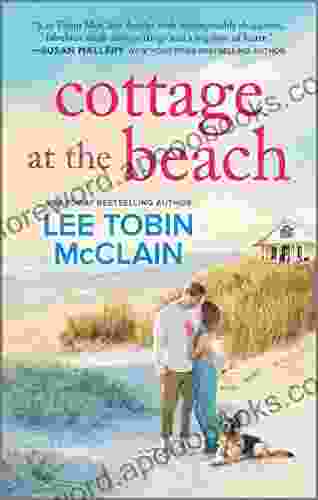
 Douglas Powell
Douglas PowellEscape into a World of Sweet Love and Second Chances with...
Prepare yourself...
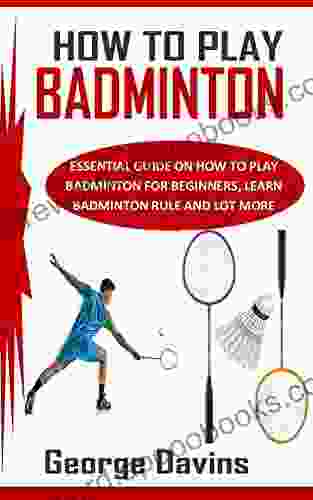
 Garrett Powell
Garrett PowellMaster Badminton: A Comprehensive Guide to the Thrilling...
Are you ready to step into the world of...
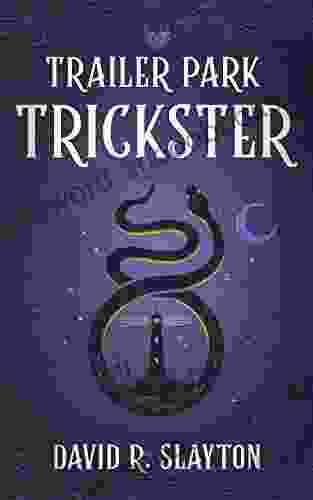
 Deacon Bell
Deacon BellTrailer Park Trickster: The Adam Binder Novels
Book 1: The...

 Oscar Bell
Oscar BellLeo: The Very Modern Taoiseach
Leo Varadkar's journey...
4.5 out of 5
| Language | : | English |
| File size | : | 1012 KB |
| Text-to-Speech | : | Enabled |
| Screen Reader | : | Supported |
| Enhanced typesetting | : | Enabled |
| Word Wise | : | Enabled |
| Print length | : | 69 pages |


